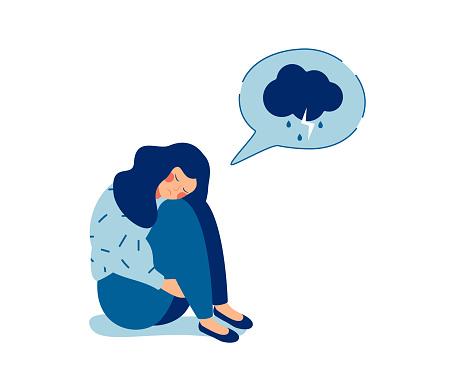Explore the World's Best Ideas
Join today and uncover 100+ curated journeys from 50+ topics. Unlock access to our mobile app with extensive features.
What is it?
Sadness is a primary emotion that is expressed and perceived equally across cultures. Basic emotions such as anger, happiness and sadness are innate and universal. Understanding basic emotions in music is very quick and does not require musical training. For instance, hearing a sad cello performance may induce a genuine state of sadness in a listener. Sadness is generally seen as a negative emotion. But we tend to find it pleasurable in an aesthetic context, which is known as the paradox of enjoying sad music.
35
268 reads
Nostalgia
Sad music is a powerful trigger for nostalgic memories of foregone times. Such reflective revisiting of nostalgic memories may enhance mood, especially if the memories are related to pivotal and meaningful moments in life (i.e., high school, college). We enjoy the sweetness of these memories through vivid imaginations. There is some felt in recollecting the good times, as well as sadness from missing them.
30
89 reads
Vicarious emotion
Music generates vicarious emotions in listeners without real-life implications. Music helps to channel one’s frustration or purge negative emotions like anger and sadness. It's cathartic. When we listen to sad music (or watch a sad film), we are disconnected from any real threat or danger that the music (or movie) represents. When we cry at the beauty of sad music, we experience a profound aspect of our emotional selves (Kawakami, et al., 2013).
30
68 reads
Prolactin
At the biological level, sad music is linked to the hormone prolactin. which is associated with crying and helps to curb grief (Huron, 2011). Sad music tricks the brain into engaging a normal, compensatory response by releasing prolactin. In the absence of a traumatic event, the body is left with a pleasurable mix of opiates with nowhere else to go. Prolactin produces feelings of calmness to counteract mental pain.
32
57 reads
Empathy
Empathy plays a significant role in the enjoyment of sad music. Empathy can be broadly defined as a process by which we can come to understand and feel what another person is experiencing. Expressions of sadness and grief are likely to rouse support and help in others. Similarly, listening to sad music may evoke an empathic concern in those with a strong disposition to empathy.
29
63 reads
Mood regulation
Sad music produces psychological benefits via mood regulation. Sad music enables the listener to disengage from distressing situations (breakup, death, etc.) and focus instead on the beauty of the music. Further, lyrics that resonate with the listener’s personal experience can give voice to feelings or experiences that one might not be able to express oneself.
29
48 reads
An imaginary friend
Music has the ability to provide company and comfort. People tend to listen to sad music more often when they are in emotional distress or feeling lonely, or when they are in introspective moods. Sad music can be experienced as an imaginary friend who provides support and empathy after the experience of a social loss. The listener enjoys the mere presence of a virtual person, represented by the music, who is in the same mood and can help cope with sad feelings.
32
69 reads
IDEAS CURATED BY
Tanosei hito's ideas are part of this journey:
Learn more about personaldevelopment with this collection
Leonardo da Vinci's creative process
How to approach problem-solving like da Vinci
The importance of curiosity and observation
Related collections
Similar ideas
3 ideas
3 ideas
8 ideas
Read & Learn
20x Faster
without
deepstash
with
deepstash
with
deepstash
Personalized microlearning
—
100+ Learning Journeys
—
Access to 200,000+ ideas
—
Access to the mobile app
—
Unlimited idea saving
—
—
Unlimited history
—
—
Unlimited listening to ideas
—
—
Downloading & offline access
—
—
Supercharge your mind with one idea per day
Enter your email and spend 1 minute every day to learn something new.
I agree to receive email updates

